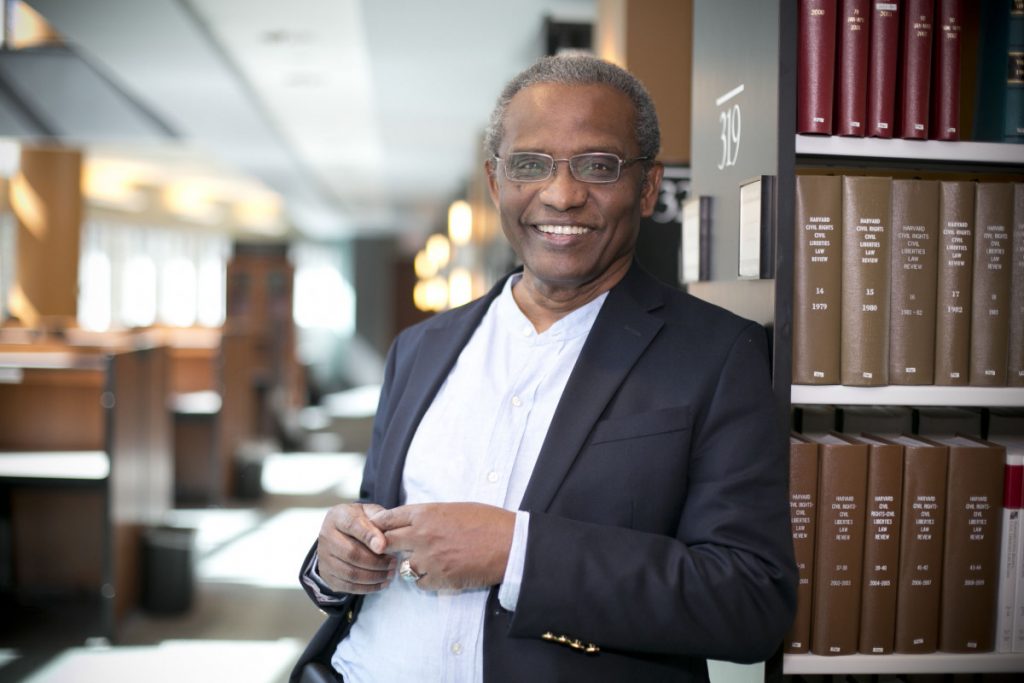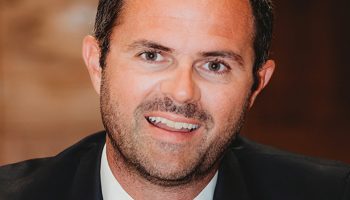Human rights have been at play in legal issues since the beginning of time. Slavery in ancient Rome, peasants in the 13th and 14th centuries, the Trans-Atlantic Slave Trade, segregation in the United States, wars on religion and women’s rights — government, monarchies and dictatorships have been using human rights as political and legal power plays for as long as anyone can remember.
Abdullahi Ahmed An-Na’im is the Charles Howard Candler Professor of Law at Emory Law, associate professor in Emory College of Arts & Sciences and senior fellow of the Center for the Study of Law and Religion at Emory University.

Originally from Sudan, An-Na’im came to the United States 20 years ago and will be returning to Chautauqua for the second time to deliver his lecture, titled “Beyond Platitudes of Interfaith Discourse,” at 2 p.m. Wednesday, July 12, in the Hall of Philosophy.
“The idea is that when we think we engage in interfaith discourse, we do so sort of sporadically (and) superficially, without challenging ourselves about what is really the issue,” An-Na’im said, “which (are) the underlying biases and attitudes that create tension among communities.”
An-Na’im said he credits the boundary between interfaith and intrafaith for creating this tension. While interfaith refers to relating to or between different religions, intrafaith refers to relating to one specific religion.
Oftentimes people don’t ask the questions necessary to grow in their religion, An-Na’im said. For example, he will say to himself, “I’m a Muslim,” and follow with “Am I really a Muslim? Do I behave as a Muslim?” He said he’s been struggling with these questions his whole life.
“The main worry for me is we talk of platitudes, things that we assume we know and understand and believe in, whereas, in fact, we don’t,” An-Na’im said. “We don’t act on what we think we believe in.”
He has plans to discuss the June 24 overturn of Roe v. Wade. An-Na’im said this decision has made the public realize false positions and how much people like to hide behind legal jargon.
“The problem is that we tend to use the Supreme Court and the legal system as a sword or as a shield,” An-Na’im said, “instead of really taking on the issue to understand what is the problem and how to transform social attitudes and individual behavior.”
After the overturn of Roe v. Wade, states can individually create laws allowing or banning abortion, a right that was protected for almost 50 years.
An-Na’im said the original decision of Roe v. Wade was used as a shield against those who tried to take away that right.
“When you do that, the other side has no choice but to go for the same type of tactics,” An-Na’im said. “The pro-choice group immediately goes into our struggle to recapture the Supreme Court. Now, a Supreme Court which can be recaptured or captured is not yet a Supreme Court, it is a partisan goal.”
Glorifying the legal system and Supreme Court is futile, he said, because they are composed of human beings, and the people of the United States are giving them too much power. To rectify this, he said people need to go toward transforming attitudes on the topic.
“What is really at issue here is the dictatorial impulse to impose our position on others,” An-Na’im said. “Whether I am in favor or against choice, when I impose my view on the other side, all the other side will do is wait until they impose their view on me.”
His second point is that some people believe that socially and culturally, religion is making “a return,” but he wants to make sure people know religion has never left.
“The First Amendment clearly cannot take away the political impact of religion, and the social impact,” An-Na’im said. “All it says is that the state cannot do this or that. We need to change attitudes about sexual relations, about intimacy, about privacy, about women’s right to choose — those are the issues that we need to really confront instead of using legal jargon to cover our biases and impulses.”
An-Na’im said he wants people to understand the action of “don’t talk, just do,” is based in believing in the values communities need to cross boundaries.
“I am committed to human rights advocacy, but I challenge a sort of dedicated understanding of what human rights are and, ultimately, it’s telling the hypocrisy that our societies are about human rights,” An-Na’im said. “We talk about it in condemning others, but we do not challenge ourselves on the issues in our own communities.”




